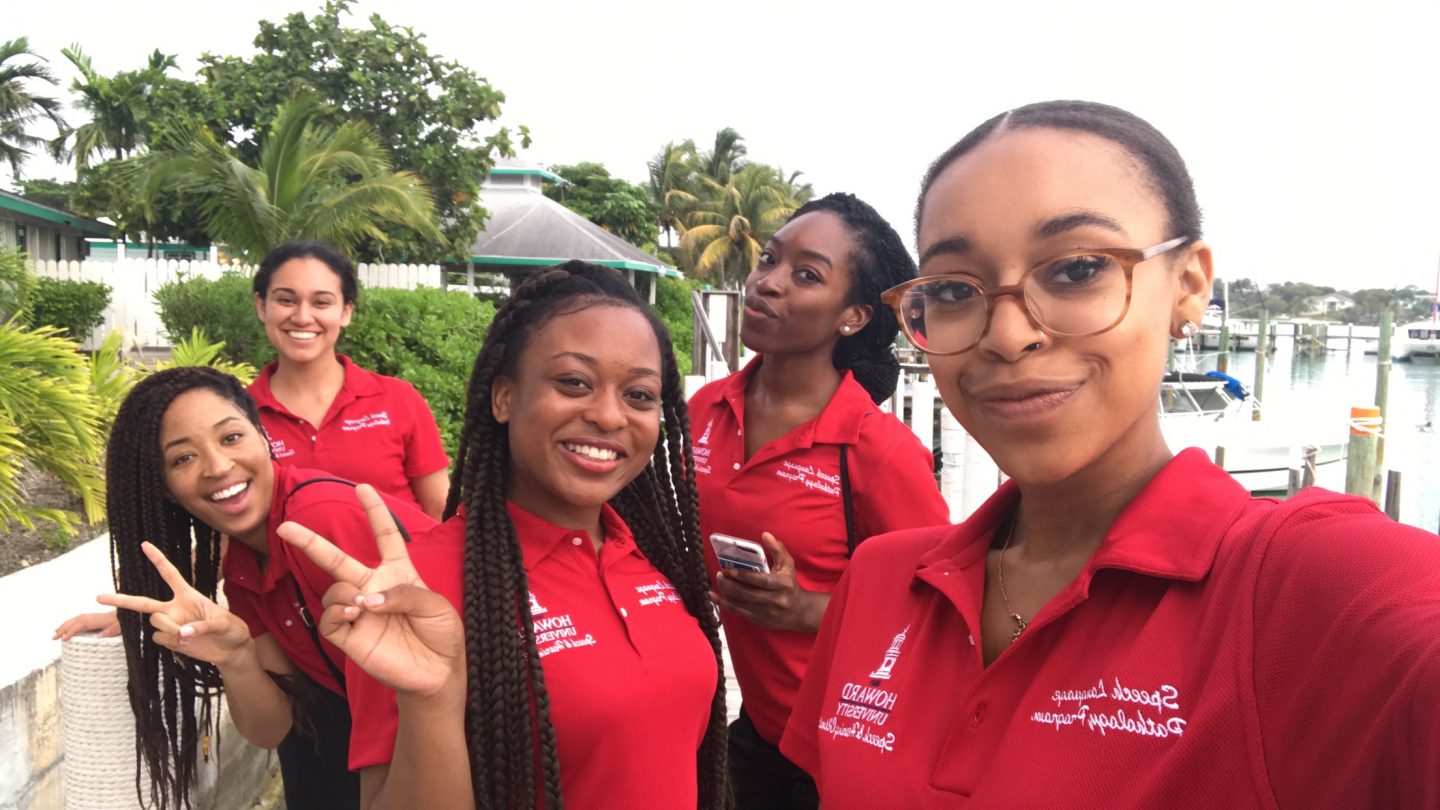Speech Pathology / Communication and Science Disorders

Oh, grad school. Many people ask me if you have to get your Master’s to work as a Licensed Speech-Language Pathologist SLP. The short answer is yes, but there is also an option to work as a Speech-Language Pathologist Assistant SLPA.
What’s the difference?
The SLP is a Master level graduate who may be responsible for assessing, diagnosing, and treating speech, language, social communication, cognitive-communication, and swallowing disorders in children and adults.
The SLPA is a Bachelor level graduate, or has completed an SLPA program who will have some limitations in the setting they can work in (more on that later), and will not have the ability to assess, diagnose, or teach at specific levels.
If you are reading this, you are probably looking to start graduate school, so first, I want to say congratulations. The next two years will be critical in building a foundation and exposing yourself to what the field has to offer. It’s important to choose wisely. I hope these tips will help you select the right school. When you do, please return to this post, or find me on any social platform. I would love to hear about your success and/or any challenges you may have experienced.

The tips mentioned here are my own opinion and have been cultivated from my personal experiences. There may be variability across states/ countries and new insight may have been developed after his post.
#1 Know Your Why
I had to start with this one because it’s essential to know why you want to be a Speech-Language Pathologist. Maybe it looks cool, or you met someone in the field who inspired you. Maybe it’s the money, or perhaps the flexibility that appeals to you. Whatever it is, own it. I will immediately say that if it’s the money, that will come, but there is a lot of current and continuing work before you get to it. Let that be your initial enticement into the field, but know there is much more to be gained. If you don’t know why you are here, take some time to think about it before considering the other four tips. You will need this reason to fuel your motivation throughout your journey. Knowing your why will also help you find your niche, or be open to learning about something else you didn’t know existed.
#2 Understand What You Like
This involves having some general knowledge about the field and understanding the different populations you can serve. Notice, I said understand, not know. You do not have to know what you want to do when you begin graduate school, but having a general understanding can help guide you. There may be specific scholarships/opportunities designated to pediatric, medical, bilingual, or assistive technology. Additionally, some programs offer particular course work to help build on the knowledge you may need with particular populations. You will also have externships in which you may have some weight in choosing aspects of, like the setting you want to be placed in for the experiences you’d like to have. Nonetheless, if you have no idea, this is a great time to be open and get experience everywhere you can so you can learn what you like and dislike. Graduate school is the perfect time to experiment before committing. Keep in mind that where you start is not where you have to finish. In this field, you will never be stuck if you are willing to stay educated. Check out @THESLPWAY to hear from some great people already in the field.

#3 Think About What’s Important to You
We all know it can be hard to get into a graduate program in this field; it is very competitive. For me, it was essential to apply to schools I loved, liked, and didn’t mind attending. I saw graduate school as a short moment in life, and I just needed the opportunity to further my education, no matter where I ended up. But for some, maybe location and social life is important. I understand because you want to have balance, and you will need some time away from the books.
#4 What Can You Afford
Graduate school can be expensive, and we have no coins to waste. You should consider additional costs like out of state fees, books, certifications, the cost of living, scholarships, loans, and unanticipated expenses. I was hit with a lab fee, BLS certification, and our uniform cost that wasn’t initially stated in our welcome letter. I also had to get my passport expedited before attending an abroad opportunity, but child, that nobody’s fault but my own. I just never had a passport. Have some funds aside for those last-minute needs that may arise.
#5 Do Your Research
If you think you understand what you like or what population you want to work with, look for schools that offer your specific interests. Some programs specialize in infant feeding, Medical, and school-based services, to name a few, usually based on the professor’s specialty/availability of skill and knowledge. I recommend calling the school and asking about the professors’ research interest, the relationships they may have with the community regarding the type of externship experiences you may have or lack, and whatever you may be interested in learning more about. For example, my graduate program did not have a lot of medical contracts, so students were limited in getting that rotation or experience.
The truth is you will be paying for both education and experience, and you should get your money’s worth. Any program is going to be lucky to have you. Don’t let them choose you; you choose them. However, keep in mind that there is something to be learned and potential growth wherever you go.
YOU GOT THIS!


